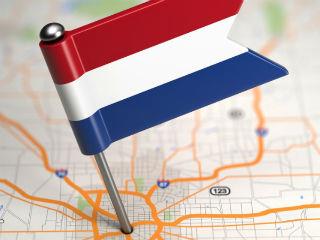In March, Geert Wilders' Party for Freedom (PVV) became the second biggest political group in the Dutch parliamentarian elections. Only Prime Minister Mark Rutte's conservative People's Party for Freedom and Democracy (VVD) won more seats

It means that one of the most progressive countries in Europe now embraces more right-wing policies on immigration and nationalism. It is true that the new coalition describes The Netherlands as ’inseparable’ from the EU. But at the same time Wilders’ influence is marked: a strong focus on inculcating the Dutch identity gets more attention and elaboration than do European goals.
by
N. Peter Kramer
Now, after a record-breaking seven months of negotiations, the Kingdom of The Netherlands has a government again, without the PVV. The name of the Prime Minister is once again Mark Rutte. The new government is a coalition of social conservatives from two Christian parties (CDA and Christian Union), a large pro-business bloc (VVD) and a party with socially liberal ideas (D66). The coalition holds power by just a one-vote majority; so a marginal stability.
To thwart a more drastic shift, Rutte's new government is leaning towards being more conservative than his last one, which was a coalition of his party and the social-democrats (PvdA). The PvdA was almost completely swept away in the elections.
The political agreement, upon which the new government is based, makes it clear that Wilders' focus on a sense of insecurity among many in The Netherlands, driven by immigration, has been adopted. 'Many people feel their own neighbourhoods have become unrecognisable and are no longer a safe place to come home to', the introduction of the document says. 'Some no longer feel at home in their own neighbourhoods because newcomers are not fully integrated'.
It means that one of the most progressive countries in Europe now embraces more right-wing policies on immigration and nationalism. It is true that the new coalition describes The Netherlands as 'inseparable' from the EU. But at the same time Wilders' influence is marked: a strong focus on inculcating the Dutch identity gets more attention and elaboration than do European goals.
The political deal mentions stronger limits on immigration: reducing some social support that goes to immigrants; shortening the asylum screening process so that applicants can be sent home quickly if rejected; tightening border controls.
The new coalition calls for more 'Dutchness' to be instilled suggesting a cultural shift that embraces nationalism over a more European view. It reflects the debate in The Netherlands over the last ten years since Wilders first ran as leader of the PVV. Some people see the strong stand on climate as left-leaning. But in The Netherlands, which lies in part below sea-level and which has been battling deadly floods for centuries, it is a natural must. Nothing left about it.
The Dutch move to the right is in keeping with the trend across Europe, as mainstream conservative parties try to keep the more extreme right parties from gaining the levers of power. France has moved to the right, Germany is expected to follow; in Austria and the Czech Republic right wing parties won elections.
What does this all mean for the EU? It seems that the rulers in the Brussels ivory EU towers only know their usual solution: more EU, more money, more rules…







